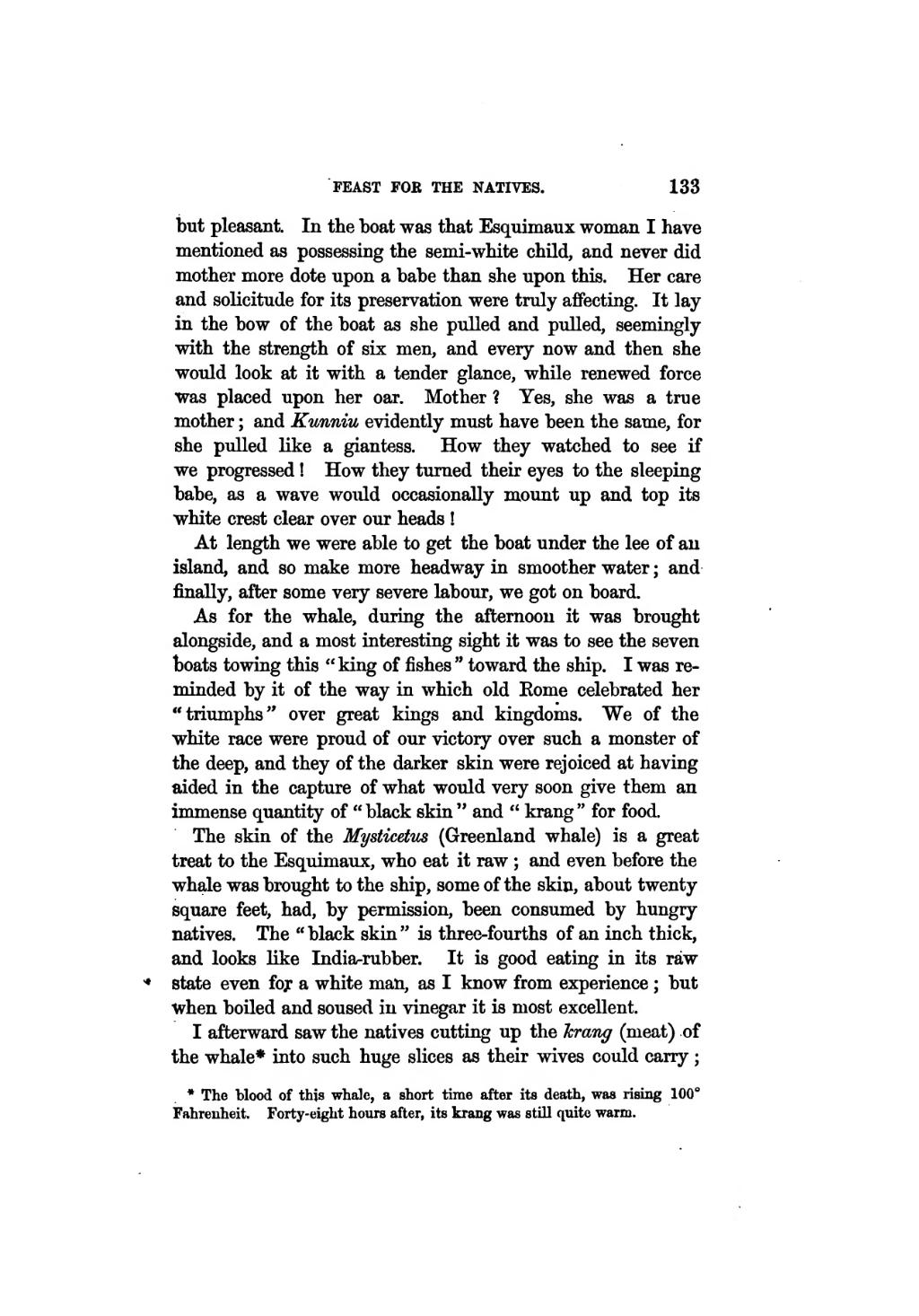but pleasant. In the boat was that Esquimaux woman I have mentioned as possessing the semi-white child, and never did mother more dote upon a babe than she upon this. Her care and solicitude for its preservation were truly affecting. It lay in the bow of the boat as she pulled and pulled, seemingly with the strength of six men, and every now and then she would look at it with a tender glance, while renewed force was placed upon her oar. Mother? Yes, she was a true mother; and Kunniu evidently must have been the same, for she pulled like a giantess. How they watched to see if we progressed! How they turned their eyes to the sleeping babe, as a wave would occasionally mount up and top its white crest clear over our heads!
At length we were able to get the boat under the lee of an island, and so make more headway in smoother water; and finally, after some very severe labour, we got on board.
As for the whale, during the afternoon it was brought alongside, and a most interesting sight it was to see the seven boats towing this "king of fishes" toward the ship. I was reminded by it of the way in which old Rome celebrated her "triumphs" over great kings and kingdoms. We of the white race were proud of our victory over such a monster of the deep, and they of the darker skin were rejoiced at having aided in the capture of what would very soon give them an immense quantity of "black skin" and "krang" for food.
The skin of the Mysticetus (Greenland whale) is a great treat to the Esquimaux, who eat it raw; and even before the whale was brought to the ship, some of the skin, about twenty square feet, had, by permission, been consumed by hungry natives. The "black skin" is three-fourths of an inch thick, and looks like India-rubber. It is good eating in its raw state even for a white man, as I know from experience; but when boiled and soused in vinegar it is most excellent.
I afterward saw the natives cutting up the krang (meat) of the whale[1] into such huge slices as their wives could carry;
- ↑ The blood of this whale, a short time after its death, was rising 100° Fahrenheit. Forty-eight hours after, its krang was still quite warm.
